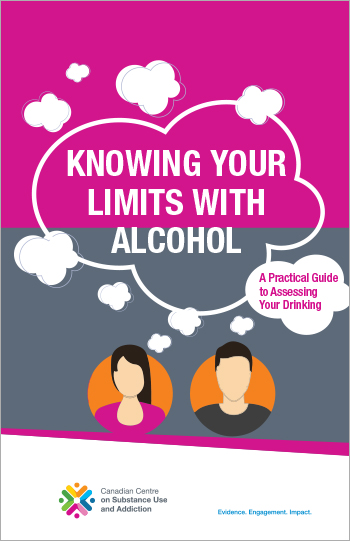In 2017, more than 23 million Canadians over the age of 15 drank alcohol. In 2014, alcohol contributed to almost 15 thousand deaths in Canada.
Health professionals play a crucial role in supporting people to make informed choices about alcohol. From educating people on lower-risk alcohol use and identifying those at risk, to treating patients with Alcohol Use Disorder, they need timely access to evidence-informed guidance and tools. That is why the Canadian Centre on Substance Use and Addiction (CCSA) has developed a new resource with crucial information for health professionals.

An image from CCSA’s RethinkTheDrink campaign. “Whether your team is in the big game or not, you can be your own MVP. If you plan to drink, drink in moderation. Set your limits and stick to them. We want you to see the whole game, even if the referee doesn’t. Learn more here. #RethinkTheDrink”
CCSA’s Alcohol Resources webpage brings together guides to alcohol education, screening, brief interventions, treatment and referral. The webpage also features resources developed by CCSA (and their partners) to guide alcohol treatment in specific contexts.
Highlights include:
- Resources based on Canada’s Low-Risk Alcohol Drinking Guidelines to support alcohol education;
- A database of alcohol screening tools; and
- “How to” videos on key aspects of a brief intervention, including motivational interviewing and non-judgmental approaches.
- Resources and education for helpers involved in the treatment of Alcohol Use Disorder
CCSA has also published an alcohol self-help guide, Knowing Your Limits with Alcohol: A Practical Guide to Assessing Your Drinking. This guide is designed to help individuals think about their drinking patterns. It provides tips and strategies to reduce harm by encouraging lower-risk drinking behaviours. Individuals can use it with the guidance of a healthcare professional or on their own as a self-help guide to track alcohol consumption and set goals to reduce their intake to lower-risk levels.
You can also take the Low-Risk Alcohol Drinking Guidelines Quiz for immediate feedback on your current drinking.







